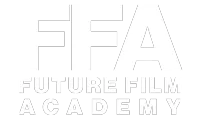FFA BLOG

Start Strong: 5 Resolutions Every Filmmaker Should Make in 2025
As we step into 2025, filmmakers find themselves at a pivotal juncture in a rapidly transforming industry. The advent of new technologies, shifting audience behaviors, and evolving distribution models demand a proactive approach to remain competitive. This moment is ideal for filmmakers to not only reflect on their past achievements but also to craft a strategic vision for their future. Setting meaningful resolutions can provide a structured framework to navigate the complexities of modern filmmaking while embracing emerging opportunities. Drawing from my extensive experience as an executive film producer, I present five essential resolutions that can help filmmakers refine their craft, stay adaptable, and thrive in this dynamic landscape.

5 New Year’s Resolutions Every Filmmaker Needs to Succeed in 2025
1. Diversify Your Funding Strategies
One of the biggest hurdles for any filmmaker is securing funding. The funding landscape has changed dramatically in recent years, and relying on traditional avenues is no longer sufficient. In 2025, filmmakers must think beyond the usual channels.
For instance, platforms like Kickstarter or Seed&Spark allow you to tap directly into your audience for crowdfunding support. I’ve also seen incredible success stories come from niche film investment networks and government arts grants. For example, a filmmaker I collaborated with recently secured a substantial amount through a streaming platform development fund, which not only financed the project but also ensured distribution.
The key is to diversify. Research private equity groups, hybrid distribution models, and international co-production partnerships. These strategies not only unlock new funding sources but also open doors to global audiences.
2. Focus on Storytelling
Great technology and visuals are meaningless without a compelling story. As Karan Johar aptly puts it, “Evolution should be your only resolution.” For filmmakers, this means continuously refining your ability to tell stories that resonate with audiences.
In 2025, resolve to hone your narrative techniques. This year, I worked with a team that spent weeks perfecting a protagonist’s arc, and it transformed the film’s emotional impact. Study films that inspire you, practice writing, and seek feedback from peers. A practical step? Take a storytelling workshop or read foundational books like “The Anatomy of Story” by John Truby. Never underestimate the power of a strong, well-told story.
3. Expand Your Network
Networking has been the single most transformative practice in my career. Filmmaking is a collaborative art, and the more people you connect with, the greater your opportunities. In my own journey, a chance meeting at a film festival led to a major co-production deal that boosted my career.
In 2025, commit to attending film festivals, joining industry groups, and meeting fellow filmmakers. For example, events like the Cannes Film Festival or Sundance Labs are not just about showcasing films—they’re about forging relationships that can lead to collaborations and mentorship opportunities. Don’t shy away from reaching out to professionals online either.
For instance, it was at the Cannes Film Festival that I had the chance to meet Phil McKenzie, who was the CEO of Goldfinch at the time. This encounter proved to be a turning point, as it led to a partnership and subsequent investment into First Flights. This collaboration was an absolute game changer for my career, opening up opportunities and setting the foundation for many of my future successes.

4. Experiment with AI Tools
AI is no longer the future—it’s the present. In 2025, filmmakers should embrace AI tools to enhance efficiency and creativity. From script analysis software to AI-driven visual effects tools, the possibilities are endless.
For example,, we developed the AI app Film Flow, designed specifically for filmmakers to create comprehensive marketing and promotion plans for their films with intricate detail. If you’re interested in exploring it, you can check it out here.
Some filmmakers are even exploring AI-generated avatars for corporate projects or conceptualizing scenes. While AI won’t replace human creativity, it’s an incredible ally for streamlining workflows and opening new creative avenues.
5. Prioritize Continuous Learning
The film industry evolves at a breakneck pace. If you’re not learning, you’re falling behind. In 2025, resolve to stay curious and commit to ongoing education.
This year, I took a course on soucal media content creation for creatives. Not only did it sharpen my skills, but it also allowed me to help grow my two companies online following successfully.
Whether it’s mastering new editing software, studying diverse filmmaking styles, or diving into emerging trends like virtual production, continuous learning is essential for staying relevant. Reflect on your strengths and weaknesses, and tailor your learning goals to bridge the gaps.
A Roadmap for Growth and Opportunity
Resolutions are more than just aspirations—they represent intentional commitments to action and growth. As filmmakers, our mission is to craft stories that resonate deeply and leave a lasting impact. In 2025, let’s not merely aim to improve our technical skills or creative abilities but also actively embrace the opportunities that arise in this ever-evolving industry.
By exploring diverse funding strategies, sharpening our storytelling techniques, growing meaningful connections, adopting AI tools to enhance our workflows, and prioritizing continuous learning, we can build resilient careers that balance creativity with sustainability. These resolutions are not one-size-fits-all; they are a foundation upon which to tailor goals that align with our individual journeys and ambitions.
Ultimately, success in filmmaking often hinges on being prepared to act when opportunity strikes. The more we immerse ourselves in the process, seek out collaborations, and share our visions, the closer we get to transforming our aspirations into tangible realities. Here’s to a year of bold creativity, growth, and impactful storytelling in 2025!
Studio 202 | Mainyard Studios | 280 Mare St | London | E8 1HE | UK
+44 7360 268742
hello@futurefilmacademy.com
www.futurefilmacademy.com

